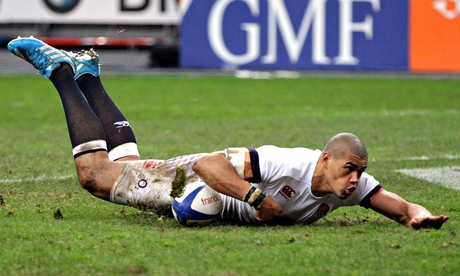
Mind game
England may have got off to a slow start, but they are not finishing matches strongly. Think Wales and Italy in their final two matches of last season's Six Nations, and their only score in the final quarter of matches in the autumn was Ben Morgan's very late try against Argentina. It is not that England lack strength in depth: Mako Vunipola made an impact from the bench and so to a lesser extent did Ben Morgan, but when Dylan Hartley, Danny Care, Billy Vunipola and Courtney Lawes went off, so did England's cohesion and poise. The modern player is physically fit and superbly conditioned and it is tired minds that seem to be costing England at the end, a period when initiative and composure are needed.
Get set
England's set-pieces cost them. They conceded four penalties at the scrum, costing them points as well as position, and their lineout failed at the end. Throwing accuracy was one of the reasons why Hartley displaced Tom Youngs at hooker in the autumn, keeping his place after coming on against Australia and immediately finding his targets after his rival had struggled. England had a lineout in France's 22 five minutes from the end: it should have provided the means to see out the game, but Youngs missed his target and France started the attack which led to the winning try. It is the micro rather than the macro that is the concern for Lancaster, an accumulation of errors undermining his strategy.
Heart and attack
England showed considerable character in scoring 18 unanswered points either side of half-time after finding themselves 16-6 down on 22 minutes. Their attacking game has evolved in the two years Stuart Lancaster has been involved: Owen Farrell and Billy Twelvetrees are developing an understanding at 10 and 12, and the wings received 50% more passes than France's. Lancaster has talked in the last year about finding players with the X factor who can turn a game with a moment of brilliance. Les Bleus were outplayed for the most part, penned in their own half but, when it mattered, they had players who were able to work a killer play. Being merely good is not enough at Test level.
The first Nowell
Lancaster intended that the daring he showed in the selection of his back division be replicated in performance. Jonny May's early injury forced a reshuffle, and by the end only two backs were in their original positions with one of them, Farrell, struggling with cramp. Luther Burrell and Jack Nowell were not shy on debut: the former scored England's second try and the latter left his wing regularly in search of the ball and made more metres than any other England player. His eagerness led to a few mistakes and he conceded two penalties, but with experience may come the special quality Lancaster is looking for. That said, it was the 19-year-old Frenchman, Gaël Fickou, a nightmare name for commentators, who was the coolest in the heat.
Slam dunk for France?
France have won the Six Nations in the year after a Lions tour throughout the professional era and with Italy at home on Sunday, they should have a 100% record after two rounds. They did not, though, look champion against England despite making the perfect start with a try after 32 minutes. The better French clubs in the Heineken Cup rely on strong packs to dictate the pace of a game, but Les Bleus were rarely on the front foot against England, scrabbling and scrambling at times. They defended strongly and forced turnovers, but they were more individual than collective. Philippe Saint-André has more work to do than Lancaster.

